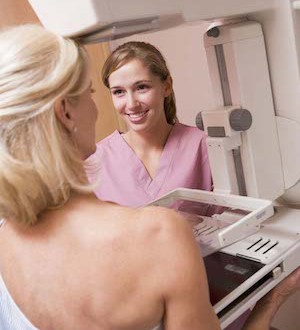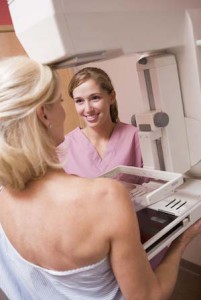Breast cancer affects thousands of New Zealanders, with around eight women diagnosed every day. As we grow older, our risk of developing breast cancer increases, so it’s important that we continue to closely monitor our breast health through middle age and beyond.
First, a few facts
A mammogram is a safe, low-dose x-ray of the breast tissue that can pick up very small breast cancers.
From time to time we hear debates in the media over the risk-to-benefit ratio of mammography. The New Zealand Breast Cancer Foundation’s stance is that the benefits of screening far outweigh any risk. Mammograms are still the best way to detect breast cancer early—and they reduce the chance of dying from breast cancer by around 33%.
Aging is one of the biggest risk factors for breast cancer, as 70% of all cancers occur in women over 50.
Who should have a mammogram?
The NZBCF recommends that women consider having a mammogram from 40, and then as follows:
- Every year for women aged between 45 and 49 years
- Every two years for women aged between 50 and 69 years
- After 70, in discussion with your doctor.
How accurate is a mammogram?
A mammogram can detect 80-90% of breast cancers. Those missed are often in younger women and women with dense breast tissue. When a breast cancer is found on a mammogram, it can be as small as two millimetres (a grain of rice), whereas a breast cancer found through self-examination is on average two-three centimetres (a cherry or walnut).
What happens during a mammogram?
Your breast is carefully placed between two plates of a mammography x-ray machine. The plates gently compress and spread out the breast tissue folds so that anything abnormal can clearly be seen by the specialist radiologists reading the mammogram x-ray images. The process should take around 15 minutes.
Will it hurt?
Some women worry that a mammogram is going to hurt. The truth is, very few women (around 5%) report finding the procedure painful. For the majority of women, having a mammogram is just a bit uncomfortable. Remember: it’s over very quickly, and those few minutes could potentially save your life.
How do I organise getting one?
If you’re over 45 (and symptom-free) you are eligible for a free mammogram every two years through the New Zealand National Breast Screening programme, BreastScreen Aotearoa. Freephone 0800 270 200 to register.
Otherwise, you can organise to have a mammogram through a private x-ray clinic or breast clinic.
If your doctor is concerned about a breast change or symptom, he or she will refer you to a breast specialist for follow-up. This can be at a public hospital at no cost, or at a private breast clinic.
How much will it cost?
Approximately $180. Some (but not all) private health insurers will reimburse the cost of a private screening or diagnostic mammogram.
What else can I do to reduce my risk of developing breast cancer?
You can reduce your risk by drinking less alcohol, exercising regularly, and maintaining a healthy body weight (especially after menopause). Reducing the use of combined hormone replacement therapy (HRT) is also recommended, especially if used over a long period of time.
The good news is that 9 out of 10 breast lumps are not cancerous. What’s more, the survival rate of breast cancer is generally good if it’s found and treated early.
It’s important to monitor your breasts between regular mammograms. Getting to know how your breasts normally look and feel will help you to notice any changes. The New Zealand Breast Cancer Foundation strongly urges anyone worried about changes to their breasts to see their doctor straight away.
This October The NZBCF will petition the government to extend free mammogram screening to age 74. Download the petition at www.nzbcf.org.nz/OlderWomen, get your friends to sign it too, and send it back to The NZBCF.
To find out more, visit www.nzbcf.org.nz.










majorminor - 9 years ago
the link is behind the word ‘negative’ even tho it does not show.
But in case it is needed here is the address;
https://www.grownups.co.nz/discuss/topic/mamograms/